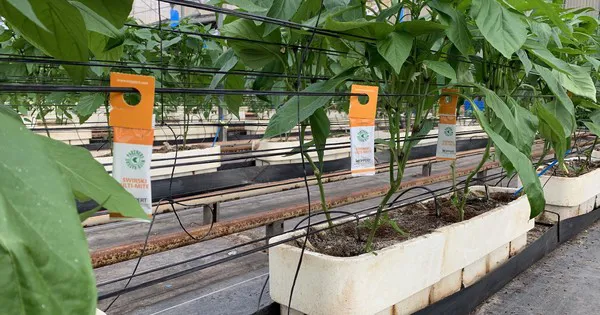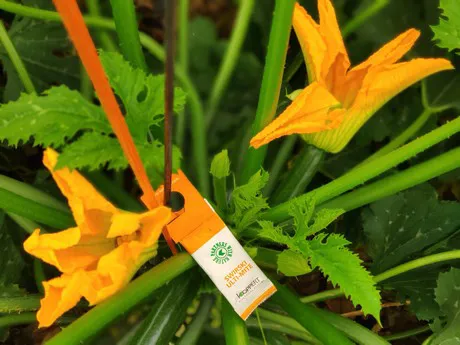The use of biological crop protection in most types of produce in Almeria is on the rise, according to Kris De Smet from Koppert. In Cajamar’s analysis of the 2017/2018 season in Almeria it was stated that there is a minor drop in the overall use of biological crop protection, but it also says that most of the crops have increased in use of biological protection. The largest decreases are represented in melon, watermelon, and tomato – these three crops pulled down the average. Kris: “This season, tomato looks to be on the rise again as well.”
Less tomato, more everything else
The media coverage surrounding biological crop protection is not really helping the cause. For some reason, the decline in tomato acreage has been reported on as a decline in the general use of biological crop protection, which puts a negative light on the industry and very much irritates Kris. “The industry is actually doing very well,” he says. These alarming reports mostly talk about the drop in use in tomatoes,” he says. “For the past few years a lot has been written about it, but most comes down to the tomato declining. There are a lot of different reasons for this. Tomato is quite a difficult crop when it comes to biological crop protection. In general, we see that there is some growth in biological crop protection.”

Kris continues: “It is true that the coverage of biological crop protection in tomatoes in Almeria has decreased, but it is on the rise again. Last season a lot of growers had problems with Tuta Absoluta, because chemical crop protection does not help much against this pest since they grow resistant. So in this season biological crop protection is getting more attention again.”
So the use of biological crop protection in tomatoes is back on the rise, but tomatoes as a crop are becoming less important for the region. “Tomato is a crop that is being produced in a lot of countries, both in Europe and Northern Africa, so there is a lot of competition; this means that the attention of growers will shift,” says Kris. “And we see that increasingly these other crops like cucumber and eggplant are also being grown using biological crop protection, this year we will also start seeing this movement in zucchini.”
Better for the grower
Why are many of these growers deciding to switch to biological crop protection? “People always think that the main reason that growers go biological is because consumers are asking for it, but I don’t think that is the most important reason,” says Kris. “When using chemical crop protection it can be quite difficult to get rid of certain pests, biological crop protection gives a useful alternative. On top of that, there isn’t a lot of residue, which is very nice for growers. Spraying just isn’t fun, but as of now it is seen as a necessity.”

The organic market
Organic production has grown tremendously in Almeria as well. “This growth is good for us too, because they are going to need a lot more of our biological crop protection when growing organically,” says Kris. “In Spain, you need an EKO-certificate to grow organically, which means that you need to adhere to a strict set of rules. Even still, in Spain it is a lot easier to switch from traditional to organic growing, because most of the growing there is in soil. In the Netherlands, for instance, most of the growing is done in substrate, which means that growers need to make a lot of changes to switch to organic growing. There is no need for changes to the general infrastructure of the greenhouses in Spain, which makes the change a lot easier.”
Complete protection
When it comes to organic growing there need to be protections for all types of potential problems that might arise. “It is important to emphasize that we are now also increasingly protecting against other types of pests in the crops that we are working in. We are now also working on a special type of biological crop protection for in the ground – microbiology. This will help us protect crops from diseases and other pests.”
Push from Europe
Since the new European Commission has been instated they have been making statements about the need for agriculture to move toward more sustainable solutions and less use of chemicals. This is of course also good news for those in the biological market. “The Spanish government agencies also try to push the industry to be more sustainable, but their efforts can be a bit misguided sometimes,” says Kris. “When they make statements about the use biological crop protection dropping, they intend it as a push for the industry to keep moving, but most of the time it will have the opposite effect.”
For more information:
Koppert Biological Systems
Email: info@koppert.com
www.koppert.com
